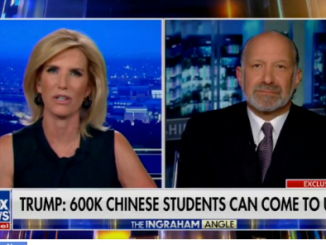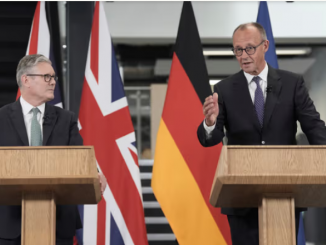
| Published August 17, 2025
Iran–China Military Cooperation
Key Developments Reported
-
Israeli media (per NY Post) is sounding the alarm over Iran’s accelerating military collaboration with China, particularly in missile production. According to the report, Iran ordered enough materials in June for hundreds of ballistic missiles, as tracked by the Wall Street Journal.
-
Tensions with Russia: The drive to bolster its missile arsenal seems partly motivated by Iran feeling let down by Russia during its mid-June conflict with Israel (the 12-day war), prompting Tehran to pivot toward China for military aid.
-
Diplomatic Warnings: In July, Israel’s Ambassador to the U.S., Yechiel Leiter, warned of “troubling” signs of Chinese support aiding Iran’s missile rebuild.
-
Israel’s Military Position: Israel remains on high alert. Military chief Eyal Zamir affirmed readiness to conduct further strikes to neutralize Iran’s threat, stressing the country’s willingness to “pay a heavy price” for its survival.
Context & Supporting Details
Materials and Supply Chains
-
Wall Street Journal report: Iran ordered enough ammonium perchlorate (solid-fuel propellant) from China to potentially produce up to 800 ballistic missiles.
-
Transport Tracking: Between February and March 2025, two Iranian ships transported over 1,000 tons of sodium perchlorate from China—enough for approximately 260 short-range missiles. A mishap in April caused a deadly explosion at Bandar Abbas port, underscoring the risks of such transfers.
-
Surface-to-air defense systems: Around the June 24, 2025 ceasefire, Iran reportedly received Chinese HQ-9 SAM batteries—strengthening its air defenses after losses in the conflict.
Broader Strategic Collaboration
-
Beyond missile fuel: Reports indicate that China has supplied Iran with drone engines, GPS modules, and satellite imagery support to Tehran and its proxies like the Houthis in Yemen.
-
.
-
Analytical assessments: Think tanks like CNAS have warned of a growing “Axis of Upheaval,” involving China, Iran, Russia, and North Korea—a strategic though pragmatic alignment aimed at countering Western influence.
-
Historical backdrop: While China ceased major arms exports to Iran around 2005, it has maintained a role in providing dual-use items and strategic technology over the decades. Recent developments mark a notable uptick in tangible military aid.
Iran’s Missile Capability Status
-
Regional strength: Iran holds the largest inventory of ballistic missiles in the Middle East, with systems capable of ranges up to 2,500 km and hypersonic speeds, underpinned by foreign assistance and domestic innovation.
Zamir said the Israeli army was ready to launch further strikes on Iran.
🔑 Strategic Implications
1. Regional Arms Race Escalation
-
Iran already has the largest ballistic missile arsenal in the Middle East. With Chinese-supplied materials, it can replenish and expand rapidly.
-
Israel, Saudi Arabia, and Gulf states may feel compelled to upgrade missile defense systems (Iron Dome, David’s Sling, THAAD, Patriot), fueling an arms race.
2. Shift in Alliances
-
Iran–Russia tensions (after Russia’s limited support during Iran’s June war with Israel) are pushing Tehran closer to Beijing.
-
China benefits by securing energy supplies from Iran while expanding influence in the Middle East.
-
This weakens U.S. and Western leverage in the region.
3. Direct Threat to Israel
-
Short- and medium-range missiles supplied with Chinese propellants could threaten all of Israel.
-
Israel will maintain a policy of preemptive strikes (like the June conflict) to degrade Iranian capabilities before they are fully operational.
-
This increases the risk of direct clashes between Israel and Iran.
4. Global Security Risks
-
A stronger Iran, backed by China, emboldens Iranian proxies (Hezbollah, Houthis, Iraqi militias).
-
Could disrupt global oil shipping lanes (Hormuz, Red Sea), impacting prices worldwide.
-
Raises the chance of a wider Middle East war that pulls in the U.S. and Europe.
5. Challenge to U.S. Influence
-
China’s role in arming Iran undermines U.S. efforts at non-proliferation and sanctions enforcement.
-
Washington may face pressure to tighten export controls on Chinese firms and reassure Gulf allies.
-
The U.S. could expand military cooperation with Israel and Arab states, accelerating defense pacts like the Abraham Accords.
📊 Geopolitical Balance
| Player | Gains | Risks |
|---|---|---|
| Iran | Missile rebuild, Chinese backing, deterrence vs Israel/U.S. | Isolation, risk of Israeli/U.S. strikes |
| China | Stronger Middle East foothold, secure oil, challenge to U.S. | Sanctions, Middle East instability may threaten trade |
| Israel | International sympathy, U.S. backing | Increased security threat, constant war footing |
| U.S./West | Justification for stronger alliances in the Middle East | Losing leverage if Iran–China bloc consolidates |
 Overall Takeaway:
Overall Takeaway:
The growing Iran–China military partnership marks a turning point in Middle Eastern geopolitics. By supplying Tehran with critical materials for missile production, Beijing is not only strengthening Iran’s military deterrence but also signaling its intent to challenge U.S. and Western influence in the region. For Israel, this development represents an immediate and existential threat, forcing it to maintain a state of high readiness and potentially adopt more aggressive preemptive measures.
At the global level, this cooperation underscores a larger realignment of power—with China positioning itself as the strategic partner of regimes hostile to the West. The result is a more volatile Middle East, an accelerated arms race, and a heightened risk of conflict spilling beyond regional borders.
Ultimately, Iran’s pivot toward China may provide it with short-term security gains, but it raises the stakes for everyone—from Israel’s survival strategies to Washington’s credibility as a regional guarantor. What emerges is a more dangerous and unpredictable world order, where alliances once thought temporary may harden into lasting blocs.
SOURCES: THE NEW YORK POST – Iran, China are increasing military cooperation and missile production, Israeli media warns
NEWS.COM.AU – ‘Bent on upheaval’: Unlikely nations unite








Be the first to comment